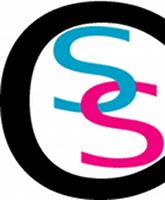California State University, Los Angeles
As educators rethink traditional grading practices, many are turning to alternative grading methods—systems that focus less on collecting points and more on collecting meaningful evidence of learning. But changing how we grade requires us to change what we ask students to do.
In this keynote, we’ll briefly explore the foundational ideas behind alternative grading—shifting from punitive point systems to feedback-driven, evidence-based learning environments. Then, we’ll turn our attention to AI tools and how they can help us design assessments that ask students to do what professionals, creators, and problem-solvers actually do in the real world. Together, we’ll look at strategies and examples for using AI to brainstorm authentic tasks, create rich contexts, generate diverse scenarios, and support student voice and choice—all while ensuring that assessments remain aligned to learning goals and standards.
Whether you're just beginning to explore alternative grading or you're already deep in the work of grading reform, this session will offer practical, approachable ways to leverage AI as a creative partner in building the kinds of assessments that truly deserve to be graded differently.
Sharona Krinsky has dedicated over 30 years to teaching mathematics in higher education, bringing extensive experience and expertise to her role as a course coordinator for first-year mathematics. Her passion for mathematics education is evident in her ongoing efforts to enhance learning outcomes for students, making complex concepts more accessible and engaging.
Since 2016, Sharona has been actively involved in the alternative grading movement, advocating for assessment methods that more accurately reflect students' understanding and foster deeper learning. She has worked with fellow educators to explore and implement grading practices that emphasize growth, mastery, and student-centered approaches, seeking to create learning environments where all students can thrive.
In addition to her work in the classroom, Sharona is a seasoned faculty development professional, providing mentorship and professional learning opportunities to colleagues. She is committed to the continuous improvement of STEM education, believing that high-quality teaching is a critical component of student success in science, technology, engineering, and mathematics.
